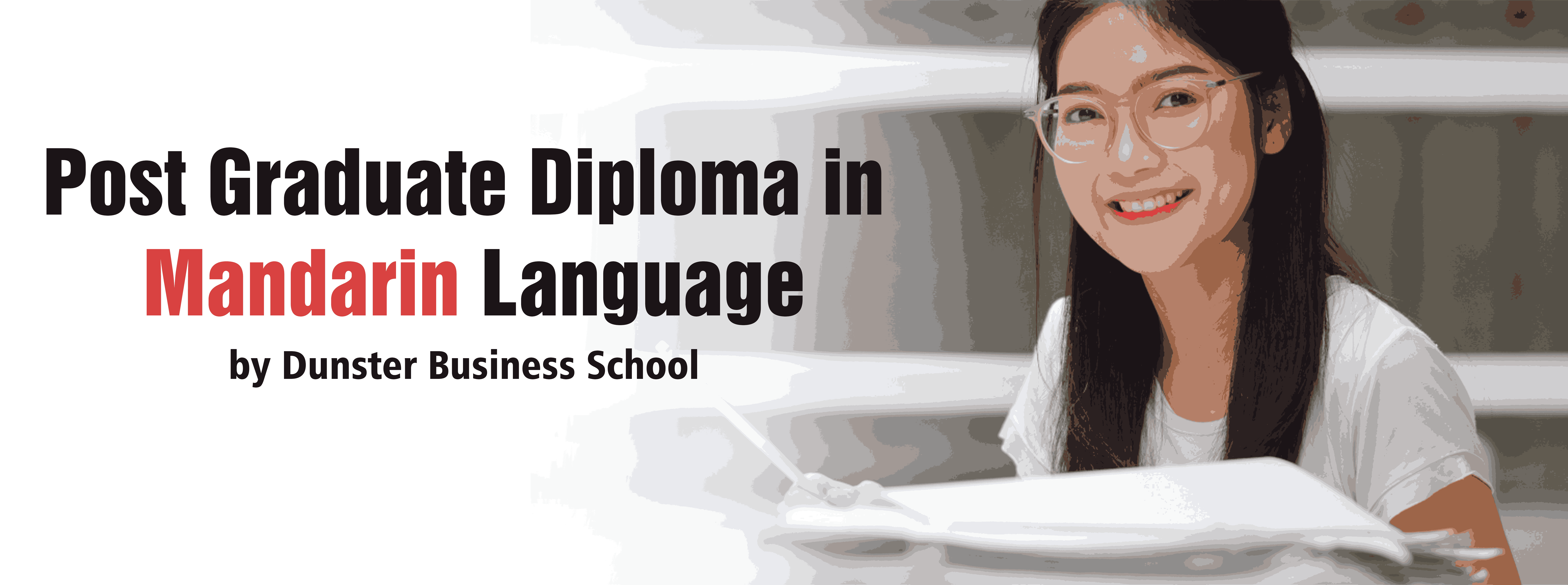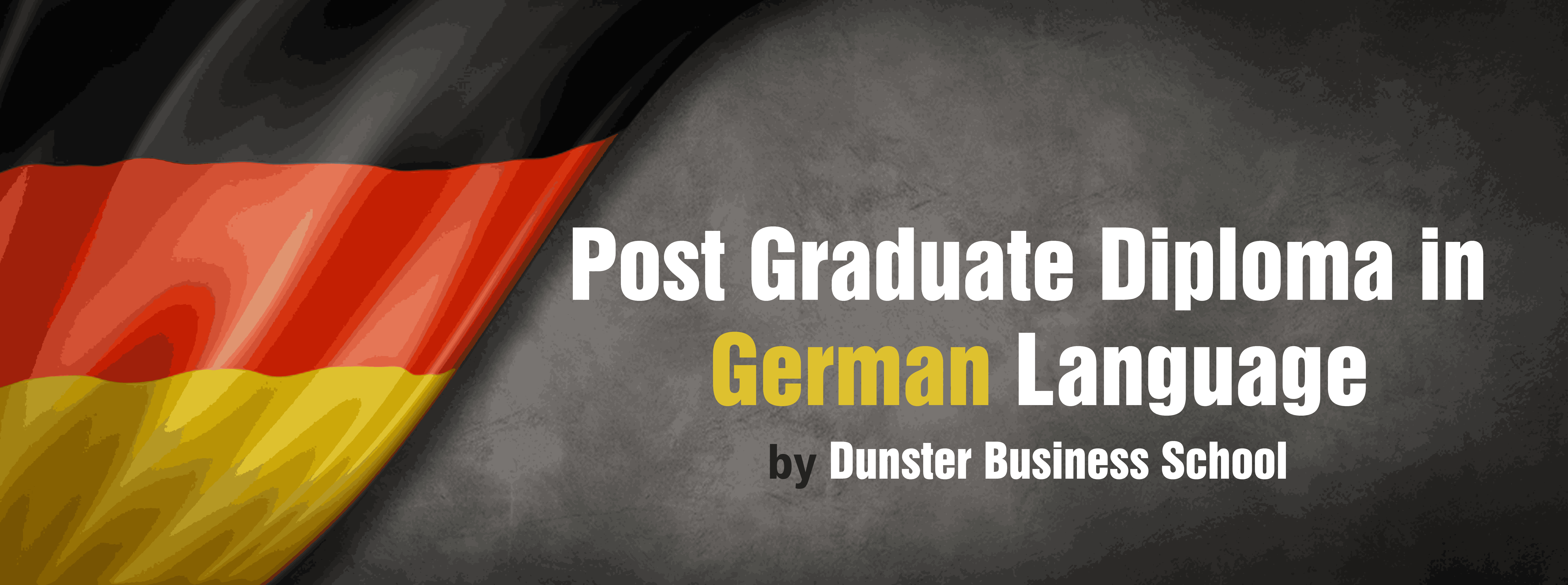Master's (MS) in German Language
Master German Language | Speak fluently using advanced vocabulary and grammar | Understand the rich culture of German | Prepare for exams like Goethe | Gain important professional linguistic skill | Get swiss certification from Dunster Business School, Switzerland. .

Total Course Duration
376 + Hours

Course Fee
INR 198000
INR 135000

Next Batch Starts
23-Feb-2026

Certification
Yes*
Live Zoom Call with a Learning Consultant (FREE)
Book a Live Class, For Free!
What you will learn at Eduwatts
Learn research methodologies within German Studies, including how to set up, manage, and present independent research projects
Develop professional translating and interpreting levels between German language
Integrate knowledge from a large number of disciplines—history, philosophy, art, politics and literature
Acquire the skills and methodologies to teach German as a foreign language
Acquire the skill to speak, read, write, and understand German at a high level of fluency
Gain broad knowledge of German literature—from classical through modern times—and develop the ability for analyzing and interpreting literary texts
Develop high-order linguistic analysis skills in phonetics, syntax, semantics, and sociolinguistics in the German language


Who is this course for?
-
Aspiring linguists and translators
-
Professionals aiming for global careers
-
Scholars conducting advanced French research
-
Enthusiasts passionate about French culture
-
Anyone who wants to appear for Goethe Examinations

Syllabus
-
Module 1: Beginners Level- A1 : Topics
- Greetings in German
- Understand days of the week and months of the year.
- Count (numbers)
- Spell words
- Introduce yourself (give your age, your job, talk about your family, say where you are from, where you live, say the languages you speak)
- Ask questions
- Learn basic vocabulary
- Grammar
- Auxiliary verbs (to be/to have)
- Genders (masculine/feminine)
- Definite and indefinite articles
- Plural form
- Possessive adjectives (my, your, his/her…)
- Regular verbs at the present tense (-er verbs)
-
Module 2: Beginners Level- A1 : Topics
- Understand a menu/Order at a restaurant
- Ask questions
- Understand and give directions
- Speak about the weather
- Say the time
- Suggest an outing
- Buy in shops
- Grammar
- Plural of nouns
- “on†pronoun
- Negation
- Prepositions of location (in, on, next to, in front of…)
- Use « Quel », « Est-ce que » and « Qu’est-ce que » in a question
- Demonstrative adjectives (this, that)
-
Module 3: Beginners Level- A1 : Topics
- Do your grocery shopping
- Indicate a quantity
- Speak about the future
- Make a positive/negative comment
- Describe someone
- Grammar
- Partitive articles
- Answering a negative question
- Futur Proche (future tense)
- Reflexive verbs (se lever…)
- Imperative Form
-
Module 4: Beginners Level- A1 : Topics
- Speak about the past
- Talk about a duration
- Talk about your studies
- Give advice, order
- Grammar
- Passé Composé (past tense)
- Présent Continu (Present continuous)
- Direct pronouns
- Time markers
-
Module 5: Beginners Level-A2 : Topics
- Speak about what sport you enjoy doing
- Speak about the future
- Give advice
- Speak about your goals
- Express a decision
- Grammar
- Revisions of A1 Curriculum
- Futur Simple (Future tense)
- Hypothesis in the future
- The negative imperative
- Express a cause/reason and a purpose
-
Module 6: Beginners Level-A2 : Topics
- Express frequency
- Describe your home
- Understand an ad for a flat
- Give directions
- Make a comparison
- Explain a choice
- Grammar
- Present tense
- The preposition “Depuisâ€
- Relative pronouns (qui/que)
- Comparative/Superlative
-
Module 7: Speak about the past
- Make a description
- Indicate a chronology
- Understand a biography
- Speak about a life-changing event
- Explain a problem/give solutions
- Grammar
- Le Passé composé and l’Imparfait (past tenses)
- « Il y a » / « Pendant »
- Chronology
- Cause/Reason
- Consequence
-
Module 8: Beginners Level-A2 : Topics
- Give an opinion
- How to avoid repetitions
- Give advice
- Express a certitude
- Express wishes
- Grammar
- Plural of -al words
- Direct and indirect pronouns
- Adverbs of manner
- ImperativeImperative+ Direct and indirect pronouns
- Subjunctive form
- Conditional
- Irregular verbs
-
Module 9: Beginners Level-A2 : Topics
- Describe a place
- Talk about citizenship
- Organize a speech
- Ask questions about an object
- Describe material
- Grammar
- Y pronoun
- Où Relative pronoun
- Indefinite adjectives (tout/toute/chaque/quelques)
- Opposition/Concession
- Interrogative pronoun « lequel »
- Demonstrative pronouns (celui-ci/celui-là …)
-
Module 10: Beginners Level-A2 : Topics
- Understand a written/oral advertisement
- Give your opinion
- Understand a leaflet
- Make a demand
- Grammar
- Gerundive form
- En pronoun
- Indicative/Subjunctive
- Negation
- Prepositions of localisation
-
Module 11: Intermediate Level-B1 : Topics & Vocabulary
- Talking about past experiences and encounters
- Expressing aims and causes – comme, puisque and parce que
- Providing a detailed description
- Describing personal motives
- Justifying a choice
- Talking about travels
- Making suggestions
- Giving your opinion
- Hypothesising
- Talking about countries and regions
- Describing a fictional character
- Describing feelings and emotions
- Talking of hopes and aspirations
- Expressing regrets
- Expressing, promoting, and justifying opinions
- Debating: politics, recycling, the environment, new technologies, social issues, consumerism
- Expressing feelings and emotions
- Expressing obligation, possibilities, and restrictions
- Writing a variety of texts (text messages, emails, letters, etc.)
- Talking about movies (storyline and characters)
-
Module 12: Intermediate Level-B1 : Grammar
- Review of the past and future tenses
- Plus-que-parfait (Past perfect)
- Agreement of the past participle with avoir (passé composé tense)
- Direct pronouns (le, la, les)
- Conditional tense
- Hypothesis : si + imparfait
- Prepositions with countries and regions
- Past conditional
- Adverbs in ‘-ment’
- Linking words
- Subjunctive
- Verbs to express opinion – je crois que, je pense que etc.
- Impersonal structures – il faut que etc.
- Gerund : ‘-ant’
- Direct vs indirect pronouns
- Structures with verbs expressing feelings – je regrette que/ je regrette de etc.
- Pronouns order
- Relative pronouns – ce qui, ce que, ce don’t
- Word order : the adjective
- Style and register: formal/ informal
-
Module13: Intermediate Level-B1 : Cultural Content
- German regions
- German people and their holidays
- Popular German tourist sites
- The German artistic scene
- Political life in German
- Environmental issues
- New technologies
- Social causes
- German cinema (films, directors and actors)
-
Module 14: Intermediate Level-B1 : Cultural Content
- German regions
- German people and their holidays
- Popular German tourist sites
- The German artistic scene
- Political life in German
- Environmental issues
- New technologies
- Social causes
- German cinema (films, directors and actors)
-
Module 15: Intermediate Level-B2 : Topics & Vocabulary
- Expressing thoughts and feelings
- Subjectivity vs objectivity
- Structuring your speech
- Language registers
- Political and social issues
- Stereotypes
- Regional differences
- History
- Current events
-
Module 16: Intermediate Level-B2 : Grammar
- Subjunctive
- ‘Ne’ explétif
- Nominalisation
- Linking words
- Complex use of grammar to contribute to a debate
-
Module 17: Intermediate Level-B2 : Cultural Content
- German institutions
- German values and symbols
- Francophonie
- German philosophy
- The media in Germany
- German politics
- German arts
- German gastronomy
- German body language
-
Module 18: Intermediate Level-B2 : Skills Work
- Lots of speaking/debating
- Lots of listening
- Understanding different accents
- Producing various styles of written and spoken German
-
Module 19: Advance Level-C1 : Topics & Vocabulary
- Making a presentation
- Putting forward arguments
- Cause/consequence
- Expressing opinions and feelings
- Hypothesizing
- Reporting a message
- Expressing nuance
- Talking about memories
- Aesthetics
- Current events
- Social issues
-
Module 20: Advance Level-C1 : Grammar
- Presentations: words and structures
- Subjunctive: present, imperfect, and past perfect
- Nominalisation
- Demonstrative pronouns
- Past participle vs gerund
- Si + tenses
- Conditional: present and past
- Past perfect
- Adjectives
- Structures for reported speech
-
Module 21: Advance Level-C1 : Cultural Content
- The German education system
- German fine arts
- German music
- German cinema
- German literature
- German history
- Doing business in German
-
Module 22: Advance Level-C1 : Skills Work
- Lots of speaking/debating
- Lots of listening
- Understanding different accents
- Producing various styles of written and spoken German
-
Module 23: Advance Level-C2 : Topics & Vocabulary
- Expressing thoughts and feelings
- Subjectivity vs objectivity
- Structuring your speech
- Language registers
- Political and social issues
- Stereotypes
- Regional differences
- History
- Current events
-
Module 24: Advance Level-C2 : Grammar
- Subjunctive
- ‘Ne’ explétif
- Nominalisation
- Linking words
- Complex use of grammar to contribute to a debate
-
Module 25: Advance Level-C2 : Cultural Content
- German institutions
- German values and symbols
- Francophonie
- German philosophy
- The media in Germany
- German politics
- German arts
- German gastronomy
- German body language
-
Module 26: Advance Level-C2 : Skills Work
- Lots of speaking/debating
- Lots of listening
- Understanding different accents
- Producing various styles of written and spoken German

What's Included?
376 Hours of Interactive, Real-Time Training
Unlimited 24/7 Access to Our E-Learning Portal
Learn from Industry Experts
Vocabulary Flashcards
Hands-On Internship Experience
Exclusive Access to Our Premium Job Portal
Globally Recognized Professional Certification
Credits and Swiss Certification from Dunster Business School, Switzerland
Sample Course Certificate


Course Description
The Master's (MS) in German Language at Eduwatts is a highly acclaimed program that will provide you with knowledge and skills for your future career. It is designed for students who wish to achieve an advanced level of proficiency in German, coupled with an in-depth understanding of the cultural, historical, and literary contexts that shape the German-speaking world. This program provides a comprehensive exploration of German linguistics, literature, and culture, equipping students with the necessary skills.
A1: The Beginners Level (50+ Hours) - This level of our German lessons online deals with Basic German Vocabulary, Greetings in German, and Basic Grammar such as Nouns, Pronouns, Verbs, Plural, adjectives, and more
A2: The Upper Beginners Level (50+ Hours) - This Level of our German learning course deals with the German Language upper Beginners level, Expressing a decision, making a comparison, indicating a chronology, expressing certitude, grammar like Future tenses, Relative pronouns, Comparative/ Superlative Sentences, Adverbs, Demonstrative Pronouns, and more
B1: The intermediate Level (60+ Hours) -This level of our German learning course deals with skills like writing, reading, and listening. Candidates will gain skills to be able to structure sentences in the German Language
B2: The Upper Intermediate Level (60+ Hours) - This level of our German learning course deals with extra learning about German Dialects and Complex Texts. The candidate will gain knowledge to create long speeches in German and smoothly explain complex thoughts
C1: The Advanced Level (60+ Hours) - This level of our German learning course will equip the candidate with an understanding of longer texts and their implicit meaning. Candidates will learn to express themselves fluently and spontaneously without much obvious searching for expressions
C2: The Proficiency Level (60+ Hours) - This level of our German lessons online will help the candidates to understand everything that is virtually heard or read. The candidates will be able to summarize information from different spoken and written sources, reconstructing arguments and accounts in a coherent presentation.
 in German Courses by College de Paris new.jpg)
Frequently Asked Questions
-
Is this course helpful in preparing for exams?
Yes, the topics included in this course concides with the topics majorly included in the Exam syllabus. This course is very helpful in cracking the exam such has Goethe.
-
What are the program structures?
The master's program includes a core element in the most advanced German language, language analysis, and culture unit and either select units to offer a specialization or further units to increase the knowledge of other areas. It also includes a research element with a culminating project.
-
Can I focus on one type of study within German?
Yes, for the most part, students can choose their electives and focus areas to include, but not limited to, translation, literature, linguistics, or cultural studies that align the most with their own personal preferences.
-
What are the Job prospects available after this program?
There are various job prospects after the completion of this program such as careers in translation, interpretation, international business, diplomacy, academia, publishing, and cultural administration, among others.

Related Courses

Post Graduate Diploma in Mandarin Language by Dunster Business School
Level: Advanced
Course Fee: INR 106000 + 18% GST

Post Graduate Diploma in Spanish Language by Dunster Business School
Level: Advanced
Course Fee: INR 54500 + 18% GST

Post Graduate Diploma in German Language by Dunster Business School
Level: Advanced
Course Fee: INR 54500 + 18% GST
.webp)
.webp)









